We had the privilege of talking to Wolfe “Wolfey” Glick, one of the most renowned professional Pokémon players to ever play the game. As a former World Champion and an international personality, Wolfey had in-depth and detailed answers for each one of the myriad questions we asked him throughout the interview.
We talked about his constancy as a competitor, the pros of playing under Panda Global, the spirit of competitive Pokémon, this year’s professional circuit, the role of The Pokémon Company International in competitive VGC, the kind of mentality needed to be a pro, and more topics appealing to the Pokémon and esports community.
Currently, Wolfey combines being a successful competitive player with managing his YouTube channel. Apart from a VGC player, he has also proved to be a reliable mentor and entertainer. As of today, more than 60,000 people follow him on YouTube, where he has garnered a very positive reputation within the Pokémon community.
Without further ado, the following is our interview with Wolfe Glick.
You have managed to make it to every single World Championship Day 2 ever since your debut in 2011, with the only exception of last year. What would you say is the secret for remaining so consistent over the years?
That’s a tough question. I think there are two parts of it in terms of my success over the years. I think the first part is that, just as an individual, I’m someone who tends to do better when the pressure is on, when it’s really crunch time. One of my strengths is that competition and pressure really bring up the best in me.
Back in the day, when you had to make the top four in U.S. Nationals in order to qualify for Worlds since that was the only way of doing it apart from the national qualifiers, I won both of those Nationals. Then when it was easier to qualify, I actually ended up doing worse in Nationals. It is not necessarily causation, but it is something that’s interesting.
For me, with the exception, of course, of last year and 2013 as well, I found that Worlds kind of being the end goal also brought the best of me, and those are the tournaments where I generally did the best. Being an individual who pressure and competition bring up the best in I think is number one. The second part is that I’m someone who cares a lot about self-improvement; I work very hard to get better and always be improving myself.
I think that mindset translates really well to VGC because, obviously, the rules change every year. Being someone who is constant in assessing himself and trying to figure out what I’m doing wrong and what I could do better translates well into Worlds being at the end of a format after you have played for a year. Where you can start to realize some of the things that you have done even within a season that might not be as good.
Last year, you signed your worst performance ever on the Worlds stage. So far, however, it seems like it will stay as a one-off. What do you think happened there? Was there something that, when you arrived home, you felt like you should definitely have done better?
Last year, my problem was pretty clear. I actually built two teams for the event. I had a Day 1 team and a Day 2 one. Even though I started off strong with five wins and zero losses, I lost the next three consecutively. It was also harder than in previous years. In 2017, you only had to win five games in order to make Day 2, whereas last year you had to win seven.
If it had been the same as in 2017, my five wins would have been enough. The main part, though, is that I spent almost all of my time preparing for my team for the second day, and I kind of just assumed that my Day 1 team was fine. I realized a couple of days before the event that the first-day team probably was not good enough… [It] had weaknesses to many common things that were popping up, but I decided to stick with it anyways.
I think being overambitious and building two teams was high-risk, high-reward. If it had worked it would have been impressive and it would have given me an edge on Day 2, but as it did not work, it was my worst performance.

In other esports, the average level of professional players has been gradually increasing over the years. Having been here since 2011, have you also noticed an increase in your opponents’ level since when you first entered a tournament?
It is clear that the teams have gotten better; that is definite. When I started there weren’t really online resources and the scene was much smaller. Because of that, the meta-game was much more compressed. At the top level, I would say that the teams were good, but through a majority of tournaments, you would play a lot of off-meta stuff.
Part of it is also that the formats have gotten better. Before I started, you would have to win a lottery just to play in VGC. Ray Rizzo, the best player of all time, missed in 2009 when he tried to enter. He just did not make the lottery. Even when I started, Regionals were best-of-one single elimination, and there is a lot more volatility in formats like that.
I would say that the teams have gotten better, but I feel like the players are about the same. It is hard to tell because you are not playing the same game; you are playing different formats and different mechanics, and it rewards different skills. At the very least, the teams have gotten much, much better.
Last July, you signed with esports organization Panda Global. How has signing for an actual competitive team impacted your career so far?
It has made it a lot easier for me to attend more events, which I would say opens a lot of doors. One of my favorite things about being with Panda is that I get to interact with and meet a lot of really cool people in other games. That has given me some really good perspective in terms of thinking about competitive Pokémon.
It has been very nice being inside of Panda in conjunction with me graduating from school, where I had a lot of things that I was doing on the weekends and the airport near where I went to school and it made traveling a real pain. It had a ridiculously high cancellation rate, but now that I am back in D.C., the area where I grew up, I have access to several good and consistent airports.
That in combination with Panda makes me feel a lot more like traveling to events is possible. I am very grateful to Panda. I feel very lucky that I am a part of them, but I play Pokémon because I want to play Pokémon. Even if I had not been signed with Panda, I would still be competing and still trying to be the best.

Along the years, several community figures and professional players have criticized the way in which The Pokémon Company International has run the competitive scene. Apparently, it tended to make it hard for players to make a living off of it. That is fortunately not your case, but it also impacts you. If you are part of a team, for example, they generally don’t allow you to wear its jersey on stage. What would you want TPCI to improve on for the upcoming years?
It is a tough question. TPCI has actually been good and has been allowing me to wear my jacket for Panda on official streams as long as I covered up one of the patrons that they did not like. In general, the truth of the matter is, in my opinion, that Pokémon has the potential to be a really big esport. Branding recognition is pretty important and Pokémon is one of the biggest ones, and the game itself is really cool and interesting.
Of course, there are some factors that are holding it back, but my understanding is that TPCI does not necessarily want Pokémon to be an esport. It does not want it to be viewed as a competitive game; it is not really the brand that they push. That being said, they do a lot of stuff really well. The fact of the matter is that if they did not host tournaments, we would not have tournaments, and that would be worrying.
I’m grateful for them for providing this experience that I have had, but I do think that it could be better. I just think it could be bigger, more popular. It can be frustrating as a player when you feel like it has the potential, but you don’t have the power nor the agency, not even as an individual but as a community, to make it happen.
I remember when I was younger I was more frustrated by it, but at this point, I feel like you have to pick your battles. Being upset with TPCI for not making it more of an esport really has no point to it. Also, to be fair, they have gotten a lot better over the years. The stream quality has improved a lot, they are streaming more events, the new circuit is interesting, the circuit has been improving… They are moving, but I think it is just slower than a lot of people would want.
What do you think that allowing more third-party organizers to enter the scene would bring to the community? Would it be effective for it to grow, or would it not really make a change?
They would need to do it properly. I know there has been some talk about a grassroots circuit before, and I have a feeling that if TPCI suddenly stopped producing VGC tournaments, that is probably what would happen. With that being said, I don’t see a problem with third-party organizers hosting tournaments, but you would need to have incentives for people to play. At the very least, it is good for local scenes. I don’t see what bad comes from it, personally.
Apart from being such a successful competitor, you also have a YouTube channel with over 60,000 subscribers as of now. How important do you think it is for VGC players to be acknowledged by the community in different ways than just as a competitor?
I think it depends on what you mean by the community. For the serious VGC competitive community, a lot of the people with whom I interact on Twitter, I don’t think they watch my videos, you know (laughs). That’s fine; I don’t expect them to. It depends on what your goals are.
I just wanted to make YouTube videos because I thought it would be fun. I did not enter with the expectation that I’d have a bunch of subscribers and a lot of people would watch my videos. It was just something that I wanted to try. It has been a very rewarding experience for me and I’m glad that I did it, but I think that the main advantages of doing something like that are… Again, it depends on what you want.
The point of building a brand is to get more opportunities and to kind of broaden your reach. I know that because of my videos; there are people who have joined the VGC community or been more interested in it. In terms of just being a member of the community, though, if you are just trying to play VGC and interact with people, I don’t think it is especially important.
If you are trying to do content creation or something along those lines it is obviously important to have a platform where you create content. But yeah, in terms of actually being in the scene, there are lots of top players who are acknowledged within the community, like Ashton Cox, who don’t necessarily create content.

The last year there was a format that allowed players to use restricted Legendary Pokémon, you won the World Championship. This year, that format has kind of returned. So far, you have made the top four at the Madison Regionals and, a few weeks ago, at the European International Championships. What do you think it is about this format that actually suits you so well?
I honestly don’t know what specific thing about this format just makes sense to me. I don’t necessarily think that I have it figured out or anything. It is possible that I have just had a couple of good results and I got lucky. However, I tend to play a very positional game.
The way that I play is very based on positioning, and when your tools are much more powerful, a restricted format like this one really benefits that. Your restricted Pokémon are much more powerful and are more notable pieces. You don’t treat a queen the same way that you treat a pawn in chess. Honestly, I don’t necessarily know. I’m just hoping to do well at U.S. Nationals, which is in a couple of weeks. That is my goal.
What do you think are the odds of you becoming a World Champion again in 2019?
The odds of anyone winning Worlds are just small, [laughs] ’cause it is very difficult. As I always do, I think I have a chance, but I don’t know how big or how small that is. People always talk about 2016, but there was a chance in 2011, 2012, 2014, 2015, and 2017. All of those years I think I could have won Worlds. I was one set away in 2012; in 2011 I was one game away from being in top four.
2014 and 2015 I was 9th and then 12th, and then in 2017 I was feeling quite good and ended up losing to Nils Dunlop, who is a phenomenal player. But if that set had gone differently, who knows? Every year I think I have a chance and I have gotten pretty close a couple of times, but until it is all down, we won’t know.
Who would you say are the tier S players at the moment? Are there any consistent ones, or is it an ever-changing list due to how volatile results are in VGC?
For the last two-to-three years, we have had people that are consistent, which is a new thing for me. Part of it is that people are going to more events now. In my generation, you played three events a year. Regionals, then Nationals, and then Worlds. For the players who are coming in now, it’s more of a culture of traveling every weekend and just playing a lot of Pokémon.
With that, people tend to remember your highs, but they don’t remember your lows. Even in my case, people are like: “Oh wow, you are the 2016 World Champion” even if that was three years ago. They don’t say: “Wolf, you went 5-3 last year at Worlds.” That makes people look more consistent, but nonetheless, people are still being consistent, and that is quite impressive.
Ashton Cox and Yuri Boschetto are two players who are jumping out as being consistent across the years. I think Paul Chua does not get enough recognition; he has been quite consistent for a while. It depends on what question you are asking, because the best players are, in my opinion, not necessarily the most accomplished and vice versa, although some of those do correlate.
We have people who are being consistent now, which is quite impressive, and I think the real question is going to be: Can those players remain consistent as we jump to Sword and Shield?

What is your opinion on the implementation of a format with three different seasons along the year? Do you think that it has been a good addition to the circuit?
I personally do. I think there are pros and cons. It has kept things more interesting. It also has made it easier for players to jump in at the start of a format in the middle of the season whereas before it was difficult because you jumped into the middle of a season that everyone had been playing for a while.
I also do think that it made the two formats feel irrelevant for some people. Some people I know did not start playing until Ultra Series. I personally enjoyed it and thought it was interesting. I don’t feel like I need a full year to work on a format, although I don’t mind it either. For me, the only tournament I really care about is Worlds — that is the big one.
At the end of the day, you might have more time to develop a meta-game if you play it for a year, but you are going to have a meta-game going into the end of the season and that is the one that matters the most, even if it is not as figured out. When we think it is figured out, actually, oftentimes it is not, so I don’t personally mind having a shorter final season.
You have recently been very active on social media about how high the price of entry fees for official Pokémon tournaments is. Could you expand a bit on the matter and explain why you think they are so ridiculous?
For the majority of my VGC career, it was free to enter events. You did not pay anything until 2016, and that was like $20. It would be one thing if someone would come out and say, “Hey, we don’t get enough funding. We need to charge this amount of money or else we can’t run the event.” Then I would understand it.
I thought $25 was unreasonable, and the fact that they were paying $30 to $40 to $70 for entering Regionals is like — I’m not interested in paying double the price of the game, personally. For me, it does not matter: I have a full-time job and a patron. But I think it is annoying and wrong and just seems like a greedy move from TOs to grab profit. Still, it is shortsighted because, in the long term, you will get more players if you have lower entry fees.
When I have had friends that wanted to come to an event, they are not gonna play if they have to pay from $40 to $60, right? Over time, if you charge $20 for an event and somebody comes and enjoys it, it is a lot easier to spend than $60. It is really frustrating. As I said before, I don’t have control over VGC and how it is run, but it is the TOs who set the rules and the fees; it is basically a monopoly.
It is like we have to play because we need the points and it is a race. The fact that they do this just to make money, it feels kind of disingenuous. It is like they are taking advantage of us, but we can’t do anything about it. It is frustrating that it is something that is really troublesome for the growth of the game, for people entering their first tournament.
There is this kind of incentive for all of them to collaborate and to collude and just raise the prize. I don’t understand why $40 now seems reasonable when the majority of the people are not going to get any return from it. It feels manipulative and I have talked about it so much, and I have not had a single TO come at me and tell me that they have to charge that much. When are they going to stop? We have no control over it. In my opinion, it is simply wrong.
Regarding this: Nowadays in Pokémon, everyone can enter a tournament. A random player can come and win the World Championship — it is possible. In other single-person esports such as Hearthstone, however, we are seeing closed leagues. There, only the best players in the world can participate. Which of these two formats appeals the most to you? Which one do you consider better for the Pokémon scene?
Franchises would probably be better for viewership and story-building, but I think everyone should be able to play Pokémon. Pokémon is a game where really anyone can win. My brother has a winning record against me, and he does not play a lot of Pokémon (laughs).
It would probably be better if it was closed and invite-only since it would help for storytelling and all those things. On the other hand, though, Pokémon is a hard game; that is just the nature of it. VGC players should be able to adapt to that, and the really great ones should be able to overcome even a tougher format to be consistent.
I don’t like the idea that people who wanted to play competitively could not. I was not part of the established community when I joined — I was just a random kid, but I ended up doing well. Everyone should have that chance, at the least.

There have always been claims from Pokémon fans about VGC players not liking Pokémon. The argument seems to be that they only do it for money and it is dull because they do not use the Pokémon they really love. Instead, they use only the same top-tier ones every time. As a competitive player, what would you say to the people who think this way? Do you agree with this sentiment at all?
No, I definitely don’t agree. Honestly, I think they are missing the point. There is a whole world of Pokémon that is the competitive scene, and people tend to look at it and say, “Oh, everyone has Incineroar. Everyone is using the same Pokémon so people are not creative.” But there is something really fascinating and interesting about the meta-game.
Somebody who is not trained can look at a game and see that both players have Incineroar, but in reality, the important part is the way those Incineroars are trained. The investment, which one is faster… That plays a huge role. Protect versus Flare Blitz or anything like that, the item, and so on.
There is so much going on at any given point between any two given Pokémon. Another factor is what they are trained for since Pokémon can’t always survive everything, attack everything, and also be as fast as possible; you have to make compromises. I think that if people realize that it is not just that everyone is using Incineroar…
Ray won Worlds in 2011 with bulky Thundurus, which changed the faith of the competitive scene for the following five years. You could look at it and say, “Wow, Thundurus was used throughout all of 2011. Ray is just using the most common Pokémon,” but the way in which she used it literally changed the game.
I think they are missing the point. How you use your Pokémon makes them unique. Anyone can use any Pokémon, right — even I could build a team with Beedrill if I wanted. The specific spread and the specific reasoning and how that compromises with the team, that is something that only I will think of.
My spread, my item choices, my move choices are all details that are completely unique to me. I decided to build my team, and I know the reason for every decision I made. You can say that you are not using your favorites and that makes it worse, but you are using something that is uniquely you. I think that is kind of the same spirit, but not as obvious.
What is usually your approach when building a competitive team for a tournament? What factors do you take into account during the process?
I think about the meta-game, about what is going to be popular and how to counter it. I can also think about what I want to use; that depends on the tournament. For example, I did not think that Shedinja was a good meta-game call for a couple of weeks ago, but I wanted to use Shedinja so I did. Normally, though, when I am playing seriously, I think about what I expect to be played and how to beat it.
The format you usually play is VGC. However, you have also tried out singles, mostly in your YouTube, more than once. What do you think are the main differences between the two formats?
VGC is shorter. It is four Pokémon versus six and two at a time versus one at a time, and that makes a huge difference. In singles, it is the same game but you have to be aware of some things. The risk-reward and positioning changes. In doubles, you do not have to worry about a sweep. If something is sweeping, it is going to be Xerneas or maybe Kyogre or, back in the day, boosted Kangaskhan.
Still, it was less about the sweepers and more about damage output. In VGC, if you are trying to win quickly, your positioning is one where you can output a lot of damage or occasionally boost with, for example, a Xerneas. In singles, however, the positioning is a lot about getting your sweeper in at the right time, whittling down his checks over time or getting your entry hazards up.
The specific mechanics are different, and that rewards different things, but I think the same theories apply and transfer pretty well. Once you know what your goal is, how you reach that goal is very similar.

How do you see yourself in two years?
I’m going to keep playing VGC as long as I enjoy it, so if I still enjoy VGC, I hope to have been doing well. I just want to still be enjoying what I’m doing.
Are you excited for Pokémon Sword and Pokémon Shield? Not necessarily competitive-wise, but just as a hardcore Pokémon fan.
I am very excited. Because a lot of my enjoyment of Pokémon comes from the competitive side, I never really know what I am getting until I have seen it. Still, I think Sword and Shield represent an enormous opportunity for Pokémon and for VGC specifically. And for me, as a content creator. I am quite excited and I hope it goes well.
Finally, anything you want to say to your fans who are out there supporting you every day?
Thank you. I mean, I have been doing this for so long and since way before there was money for winning or fans to watch your streams. It is very surreal for me to have people who watch and support me, but I definitely don’t take it for granted because I know what it is like playing for yourself and not having people watch.
Thank you so much for your time and this amazing interview, Wolfey. We are definitely looking forward to seeing you succeed in future tournaments.
For everybody who wants to support Wolfey in his career as a professional VGC player, here are his YouTube and Twitter accounts. Keep up with Daily Esports for all your in-depth interviews.



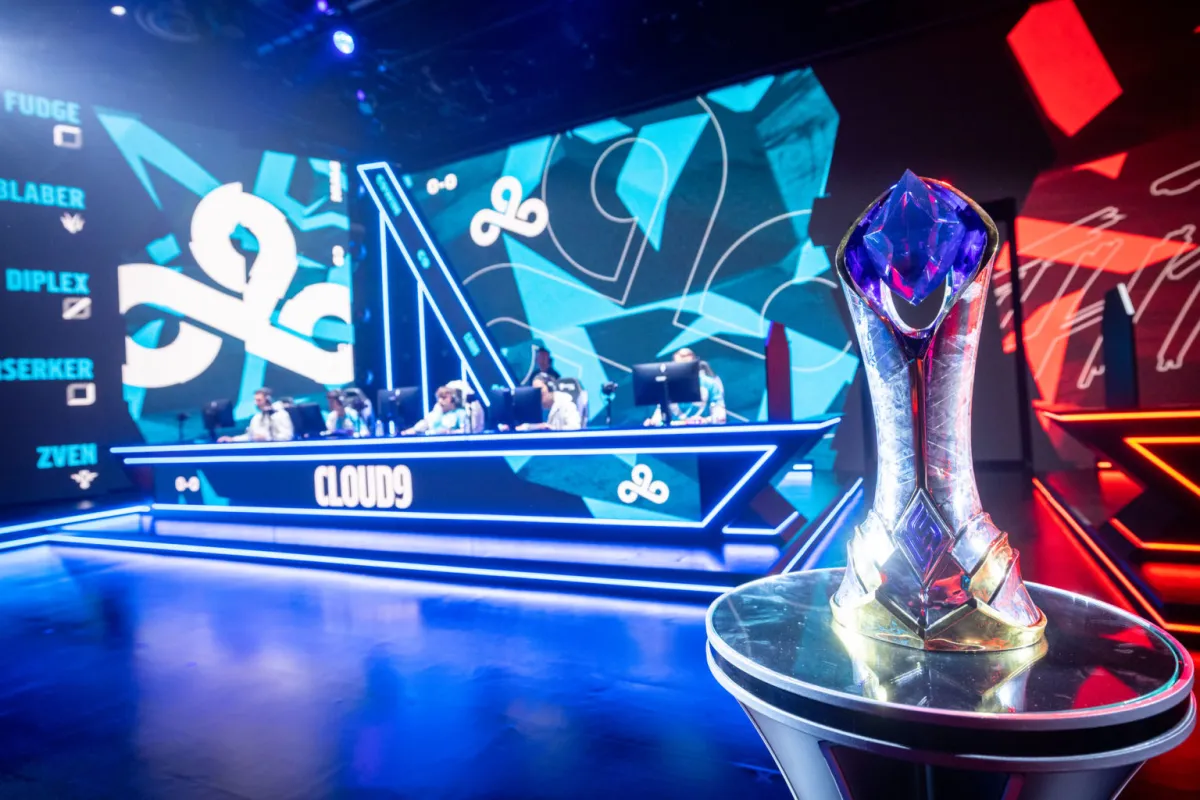
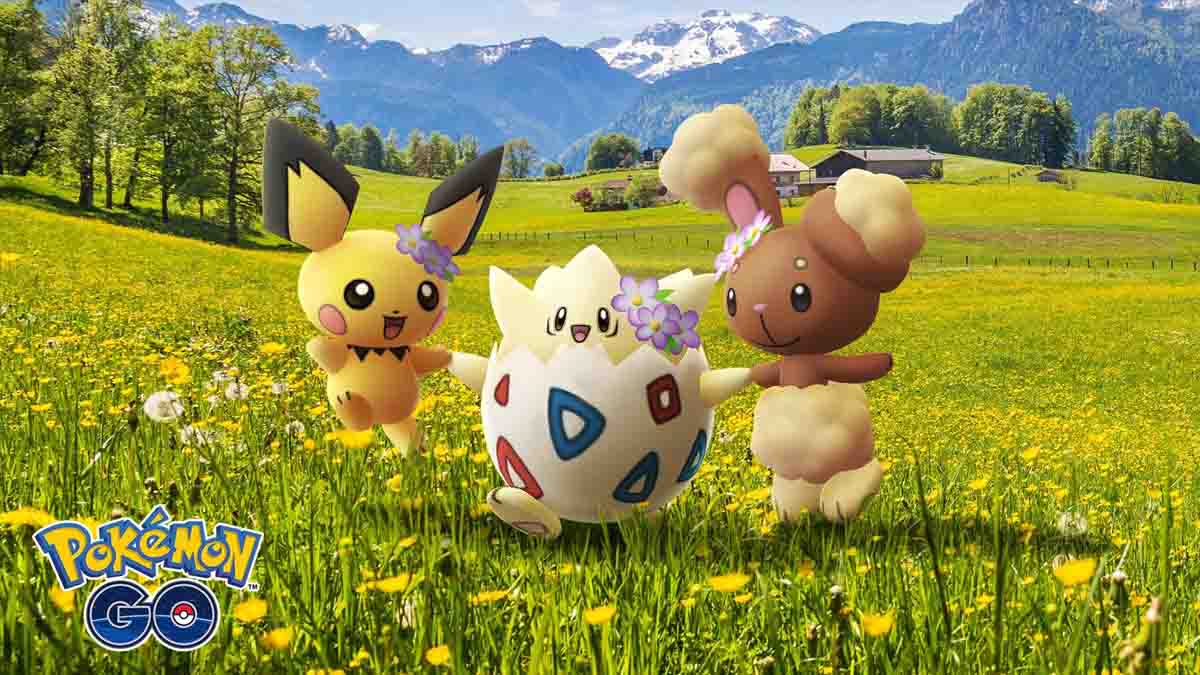
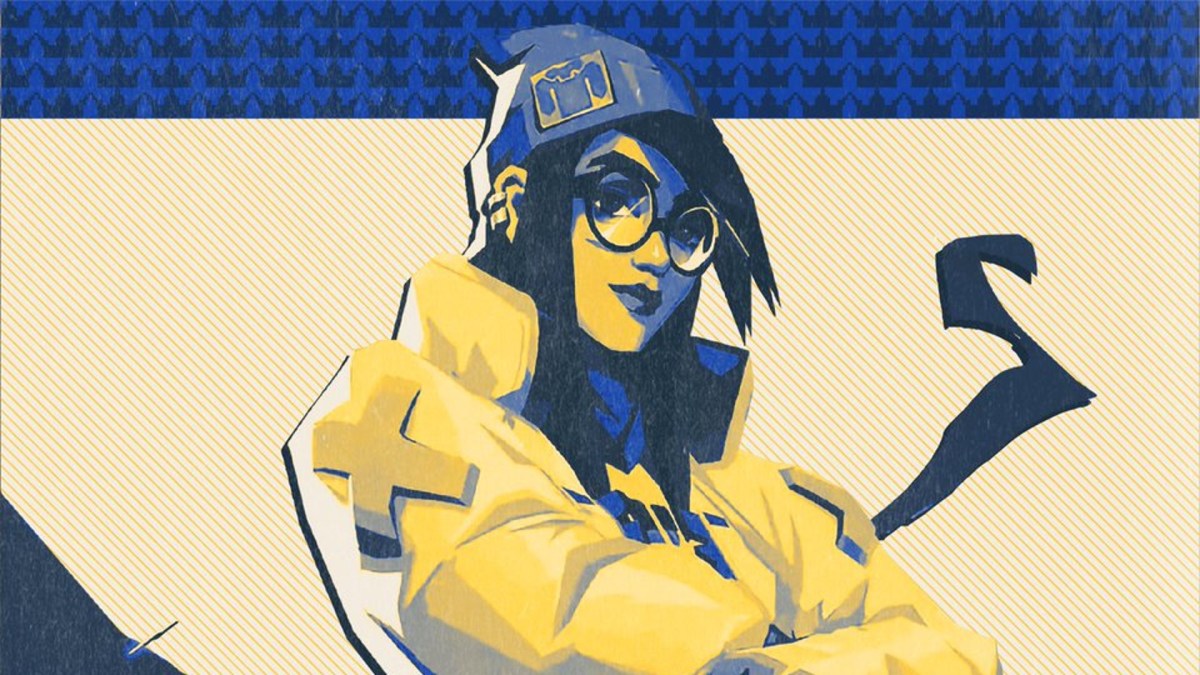
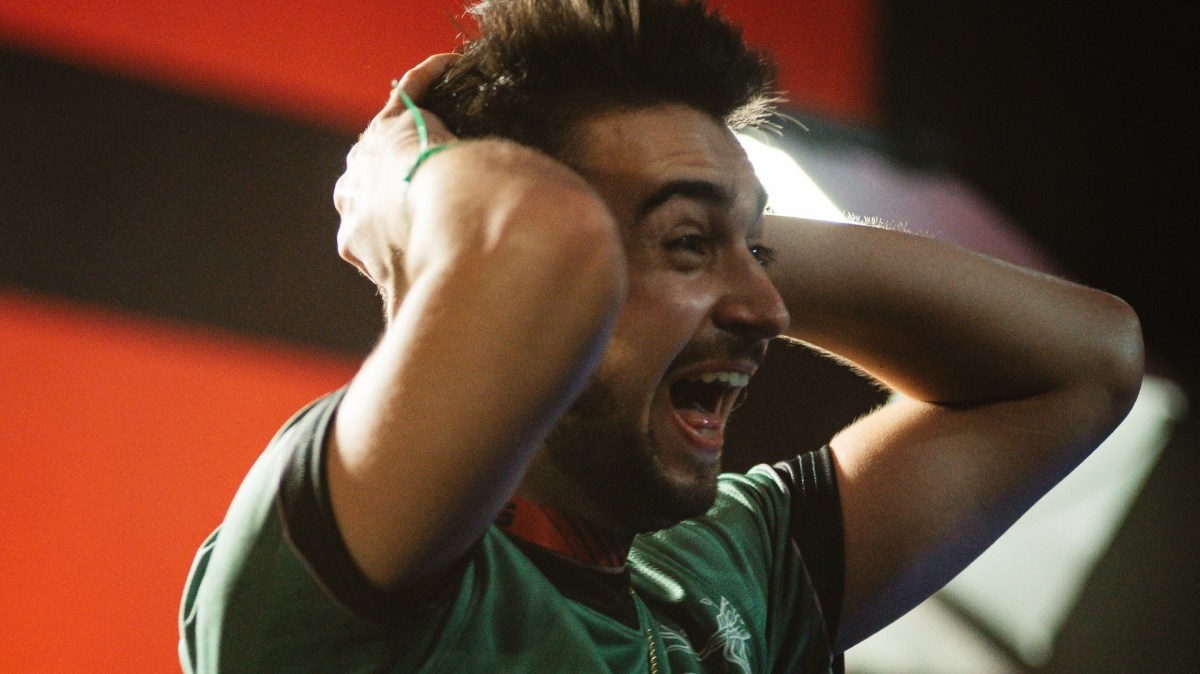
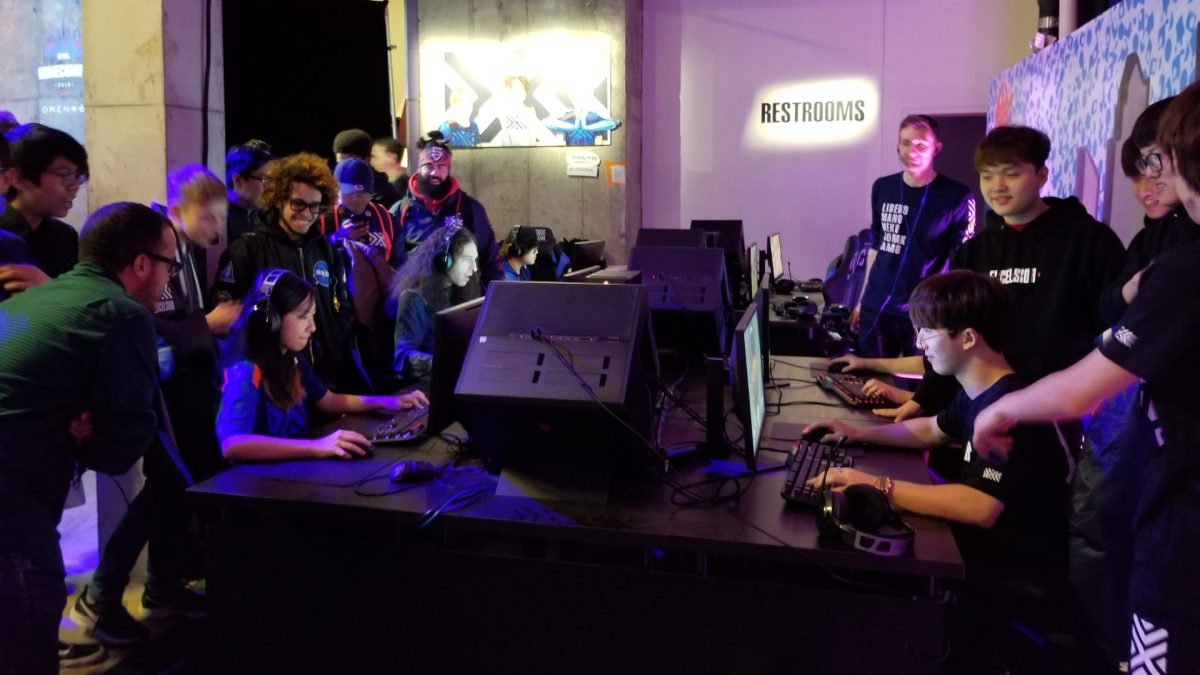
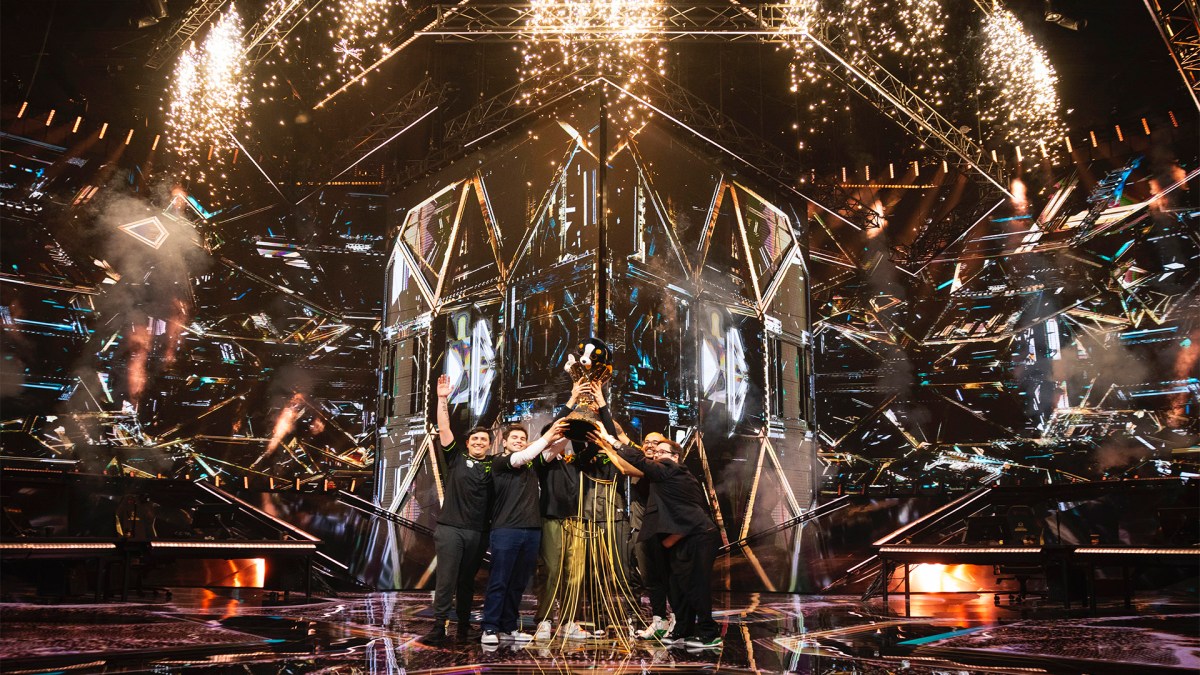
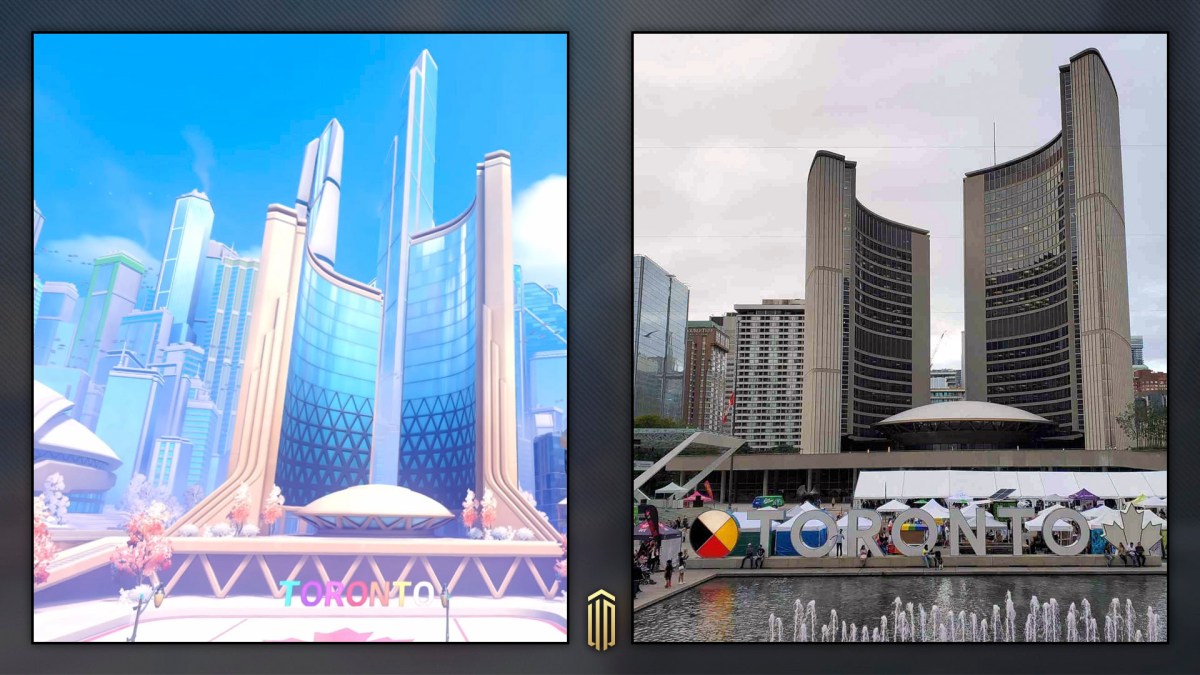
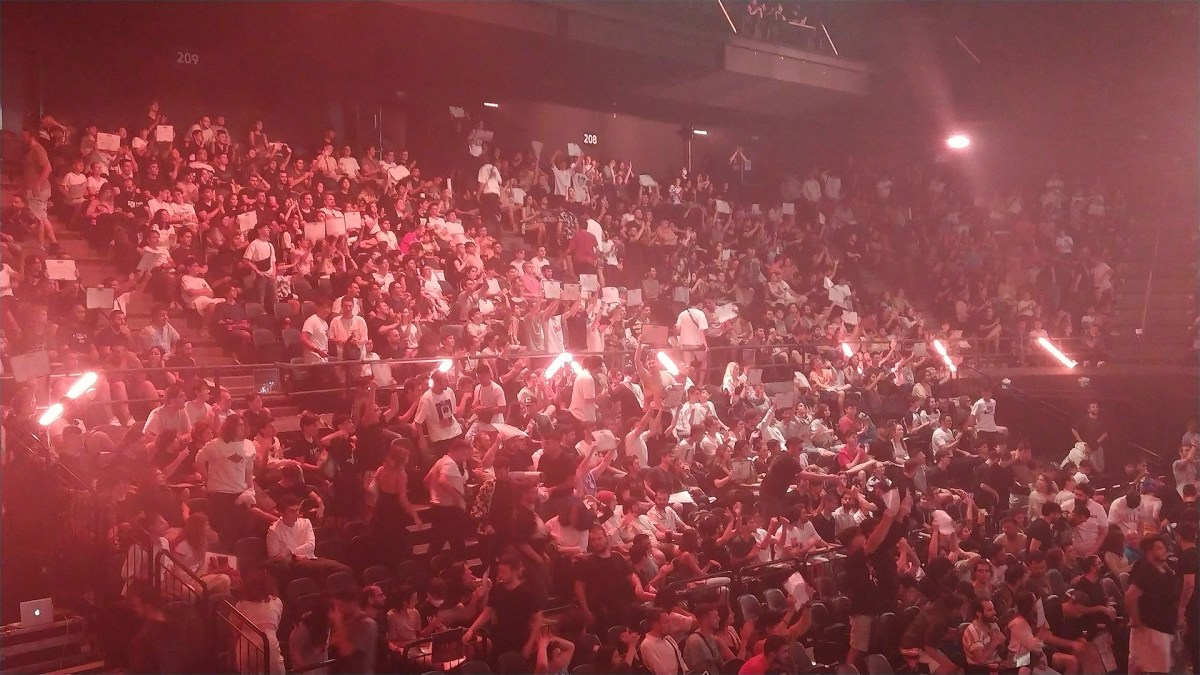
Published: Jun 18, 2019 01:00 pm